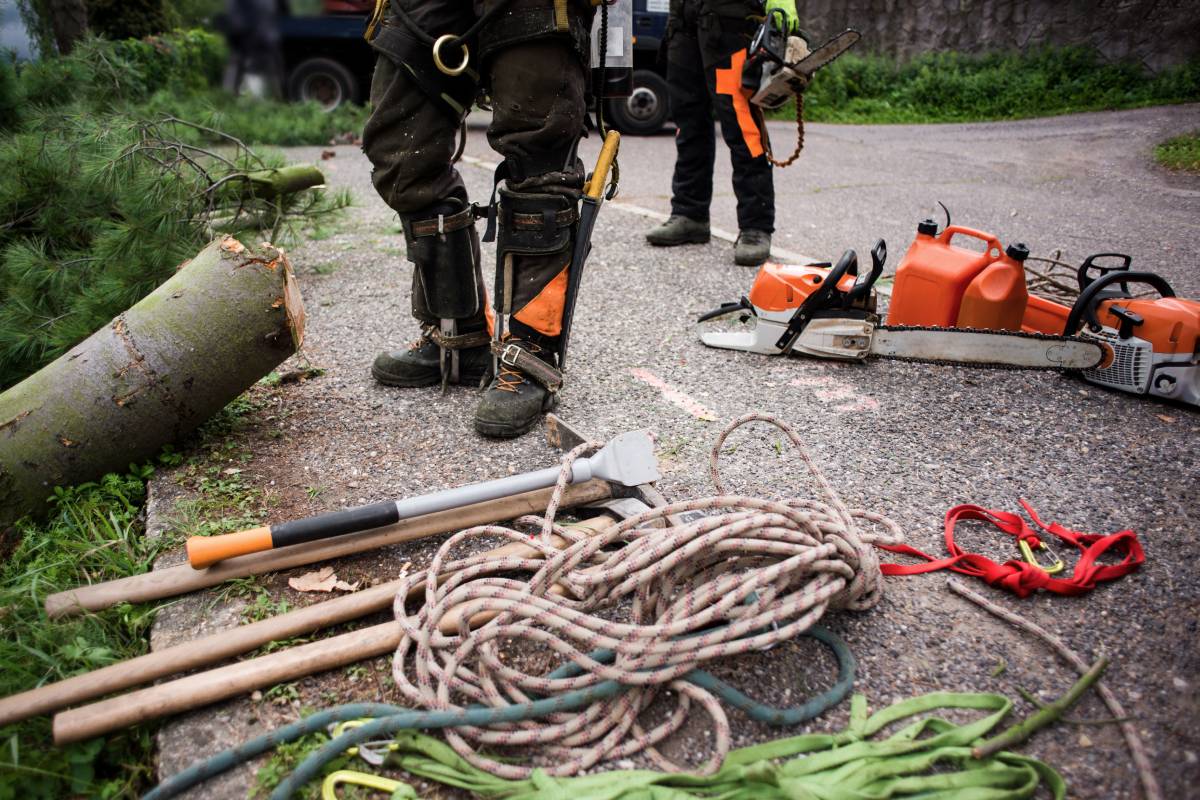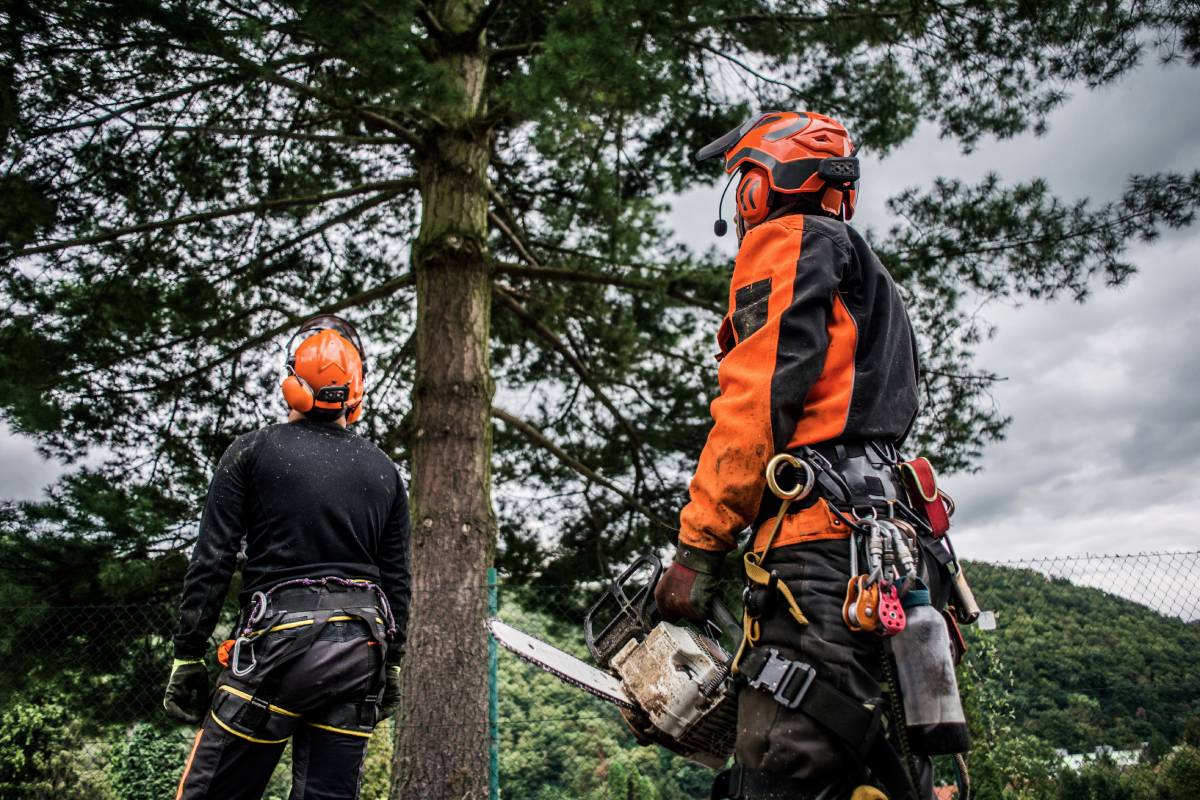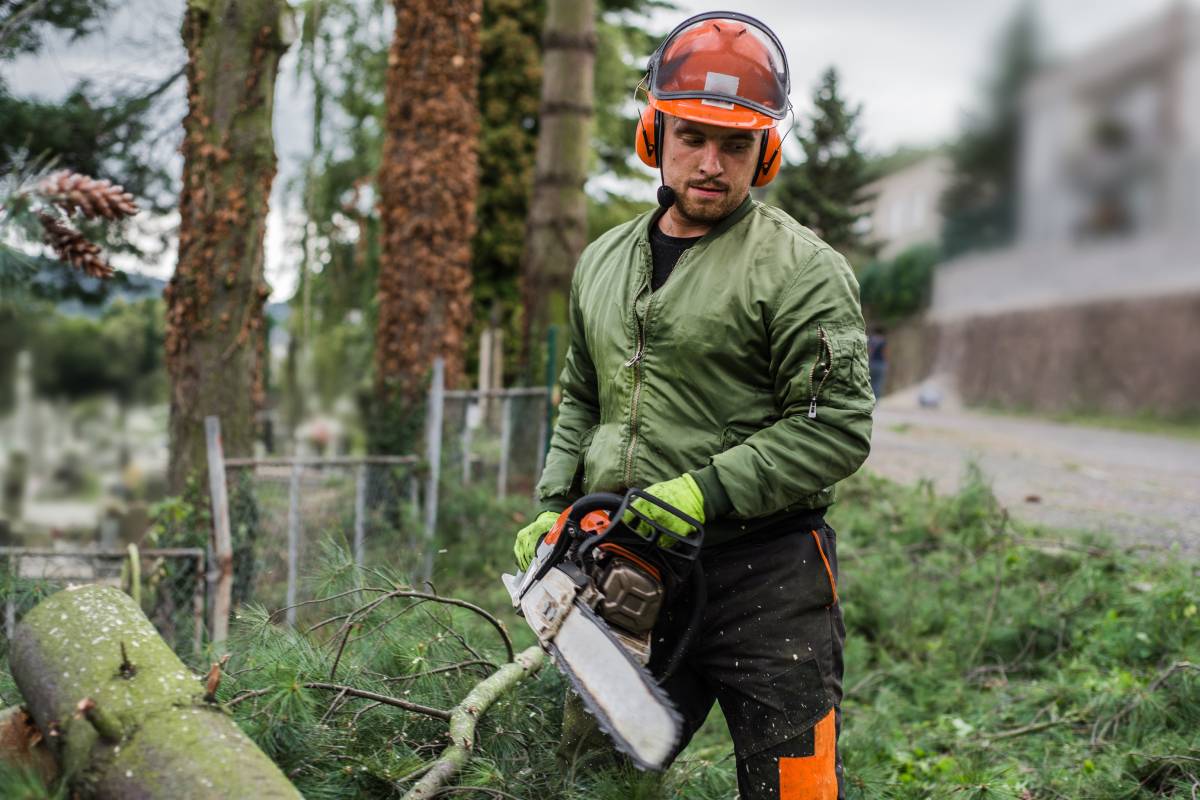
Arborists play a vital role in the care and maintenance of trees and our surrounding natural environment. With their expertise, they ensure the health, safety, and aesthetic appeal of trees in various settings, whether it be in a residential or commercial environment.
In this article, we’ll define what it means to be an arborist, outline the qualifications required to become one, highlight the advantages of pursuing a career in arboriculture, and further look into the role of a ‘master arborist’.
If you’ve been toying with the idea of pursuing a career in tree care and maintenance, read on and we’ll guide you accordingly:
What is the Definition of an Arborist?
So, what is the true definition of an arborist?
- An arborist is a professional who specialises in the cultivation, management, and maintenance of trees and other woody plants.
- Arborists are trained to assess the health, diagnose diseases, provide proper care, and ensure the safety of trees in urban, residential, and natural environments.
- They possess knowledge of tree biology, pruning techniques, planting, tree risk assessment, and the use of specialised equipment.
Not to be confused with a regular ‘tree lopper’, arborists are highly specialised professionals who have an extensive knowledge of both native Australian and foreign trees and plants. It’s not just about felling trees and thinning crowns, but keeping them happy and healthy.

What Qualifications do Arborists Need?
If you are edging towards the thought of pursuing a career in arboriculture, what kind of qualifications will you need to obtain?
- Formal Education: Many arborists start their careers by pursuing a degree or diploma in arboriculture, forestry, horticulture, biodiversity, or a related field. While a formal education is not always mandatory, it provides a solid foundation of knowledge and skills.
- Certification: Arborists can obtain certification through organisations such as the International Society of Arboriculture (ISA). ISA offers the Certified Arborist credential, which requires passing an exam covering various aspects of arboriculture.
- Practical Experience: To become a certified arborist, you’ll need plenty of hands-on experience to develop skills in tree care, pruning, climbing, and operating specialised equipment. Practical experience can be gained through apprenticeships, internships, or working under the guidance of experienced arborists.
- Ongoing Education: Arborists should stay updated with the latest research, best practices, and industry standards through continuing education programs, workshops, conferences, and seminars.

What are the Advantages of Pursuing a Career in Arboriculture?
If you are still on the fence and can’t quite decide, let’s look at some of the clear advantages that you can gain by pursuing a career in arboriculture:
- Passion for Trees: Arboriculture is a rewarding career for those who have a genuine love for trees and the environment.
- Outdoor Work: Arborists get to spend their days working outdoors, enjoying the beauty of nature and experiencing different environments (perfect when the weather is great, not so when it isn’t).
- Variety of Work: Arboriculture offers a diverse range of tasks, including tree planting, pruning, tree risk assessment, pest and disease management, and tree removal. Never a dull moment!
- Career Growth: As arborists gain experience, knowledge, and additional certifications, they can progress to higher positions, such as supervisory or managerial roles. You can even look to starting your own business in the future which is certainly something to aspire to.
- Job Stability: With the increasing awareness of the importance of trees in urban and natural environments, the demand for qualified arborists is likely to remain steady. You shouldn’t have too much trouble securing work opportunities.
- Positive Impact: Arborists contribute to the preservation and health of trees, improving the quality of life for communities and the environment.

What is a Master Arborist? How Long Does It Take to Qualify?
What is meant by a ‘Master Arborist’? And how long can you expect to invest before being considered as such? Here’s what you need to know:
- A ‘master arborist’ is an experienced and highly skilled professional in the field of arboriculture.
- Master arborists have achieved the highest level of certification and expertise in tree care, demonstrating a comprehensive understanding of tree biology, diagnosis, pruning, and management techniques.
- The path to becoming a master arborist typically involves several years of experience, extensive knowledge, and acquiring additional specialised certifications beyond the Certified Arborist level.
- The exact time required to qualify as a master arborist varies depending on an individual’s education, practical experience, dedication, and the specific requirements set by the certifying organisation.
The Takeaway
And that about sums it all up! Let’s finish off with a recap:
- Arborists are certified tree care professionals who play a crucial role in the preservation, management, and safety of trees.
- With the right qualifications, including a formal education, certification, practical experience, and ongoing education, arborists can excel in their field.
- Pursuing a career in arboriculture offers numerous advantages, including outdoor work, career growth opportunities, and positive environmental impact (not to mention an attractive salary).
- For those seeking to reach the pinnacle of their profession, becoming a ‘master arborist’ requires extensive experience, knowledge, and additional specialised certifications. It’s certainly something positive to aim for!
Whether you are already an arborist or considering a career in this field, the world of arboriculture offers endless opportunities for growth, learning, and making a difference in the world. If you relish the thought of working outdoors and spending your days helping the environment, there are few career paths quite as admirable.
Either way, we hope you’ve found this article inspiring and wish you the very best of luck with your future career progression.
